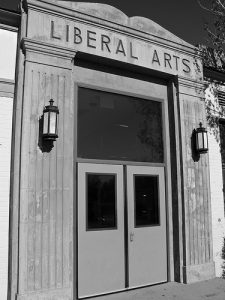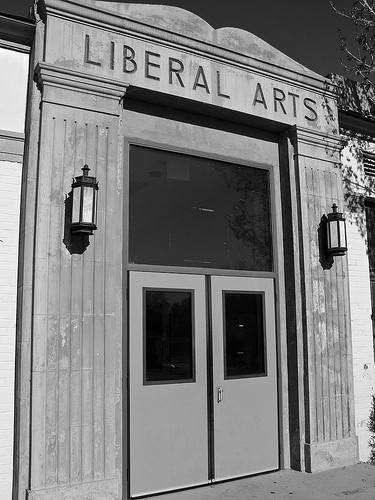 Last Tuesday, March 1, the Career Centre and Alumni Association hosted an event called “Where in the World Can I Work After an Arts Degree.” While the event was fairly well attended, not everyone could be there – so here are the Coles Notes.
Last Tuesday, March 1, the Career Centre and Alumni Association hosted an event called “Where in the World Can I Work After an Arts Degree.” While the event was fairly well attended, not everyone could be there – so here are the Coles Notes.
The four Alumni in attendance were Adam Simpson (BA ’05 English), Amanda Klassen (BA ’08 English), Dana Boogerd (BA ’08 English/History), and Shauna Svekla (BA ’08 Psychology/Sociology). Each panellist is gainfully employed and had some great advice to offer those of us who are about to graduate with an Arts degree.
One message that each member agreed with was that your degree is not going to guarantee you a job. As Svekla advised, “put your degree to the side, and accept there will be another time for that.” Don’t get bogged down by only applying for jobs that require you to have a BA, because it more than likely will not be enough.
Even if you get to the interview process – which we all know is tough – your degree isn’t going to sell you. Simpson explained that those who are offered an interview are “expected to have the smarts.” What employers are looking for once you get to the interview is what makes you special. One of the great things about a BA is that it encompasses so many different types of talents and abilities – those traits that make you unique are what should guide your job search.
A second thing to keep in mind during your job search is that your BA does not automatically entitle you to a high-paying job with hundreds of minions to see to your every whim. You’re broke anyways – why not volunteer your time in an industry related to your desired field? Take some time to realize what you want to do and understand that it won’t happen overnight. Boogerd said that the shift which allowed her to get her job was “not being afraid to start at the bottom.” She started out as a junior proof-reader and junior copy editor: she’s now freelancing for the same company. Above all, she has a job that she loves, which is inspiring to hear from someone who “didn’t want to be a teacher” – especially because there’s got to be quite a few of you out there that didn’t take an arts degree because you want to spend your life shaping young minds.
Arguably the most important lesson that these panellists taught us, though, is to take advantage of our institution. Three of the four alumni found their jobs because of a program at UFV: Klassen was recommended into her position by a co-op instructor; Boogerd found her job posting while working on the Career Centre website, and Svekla met her future employer at a job fair. While Simpson didn’t find his job directly through UFV, he credits his education here with securing him his current job: in creating a portfolio for his application, he included short stories and poetry that he had written in creative writing classes. This, he says, is what set him apart: everyone applying for the job could write a research essay, but his experience being creative in a small and supportive setting enabled him to show his future employers that he had depth in personality as well as knowledge.
To sum it up, then: use your institution to its full potential, don’t expect to be Bill Gates overnight, and allow your interests to guide your job search – not your salary expectations.


